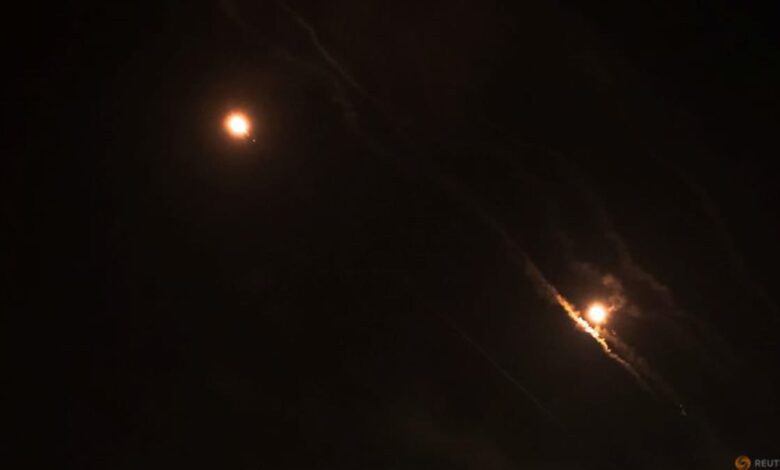‘Bad for business’: Gulf states scramble to avert wider war

DUBAI: Gulf states are grappling with the widening Middle East conflict as hostilities between Iran and Israel threaten their security and ambitious plans to reshape their economies.
Leaders of the resource-rich Gulf monarchies engaged in a rapid round of diplomacy after last weekend’s Iranian drone and missile strikes on Israel raised the spectre of a regional conflagration.
The desert countries lie across the Gulf from Iran, placing them on the doorstep of the latest crisis after months of tensions generated by the Israel-Hamas war in Gaza.
US military facilities are scattered around the six Gulf Cooperation Council (GCC) countries, and Saudi Arabia and the United Arab Emirates have both faced previous attacks on oil facilities by Yemen’s Iran-backed Huthi rebels.
The Gulf countries share an “overall realisation that conflict is bad for business and avoiding conflict comes now almost at any cost”, said King’s College London Middle East analyst Andreas Krieg.
On Monday (Apr 15), Qatar’s emir, Sheikh Tamim bin Hamad Al-Thani, spoke to the Iranian president about the “need to reduce all forms of escalation and avoid the expansion of conflict in the region”, the official Qatar News Agency reported.
And on Sunday, UAE President Mohamed bin Zayed spoke to Qatar’s emir and the kings of Jordan and Bahrain, state media said, while Saudi Arabia’s de facto leader Crown Prince Mohammed bin Salman talked with Iraq’s prime minister.
Saudi Arabia’s foreign minister spoke with his counterpart in Iran, and the Saudi defence minister held discussions with his US counterpart.
Much is at stake for the wealthy, US-friendly Gulf states, whose expensive economic diversification plans, aimed at securing their futures post-fossil fuels, rely on a peaceful environment for business and tourism.
“WEALTH OF TARGETS”
Top oil exporter Saudi Arabia has been the biggest spender, pledging hundreds of billions for new cities and leisure attractions as part of Prince Mohammed’s flagship Vision 2030 economic transformation plan.
“Saudi’s top priority is that the crisis does not escalate,” Ali Shihabi, a Saudi analyst who is close to the royal court in Riyadh, told AFP, stressing the Gulf’s vulnerability.
If there is an attack on Iran, Tehran might “be tempted to retaliate against the GCC given its close proximity and wealth of targets (that are) difficult to protect”.
“Iran just learned how difficult it is to target Israel thousands of miles away but the GCC with its proximity and massive size compared to Israel is a different story,” he added.




